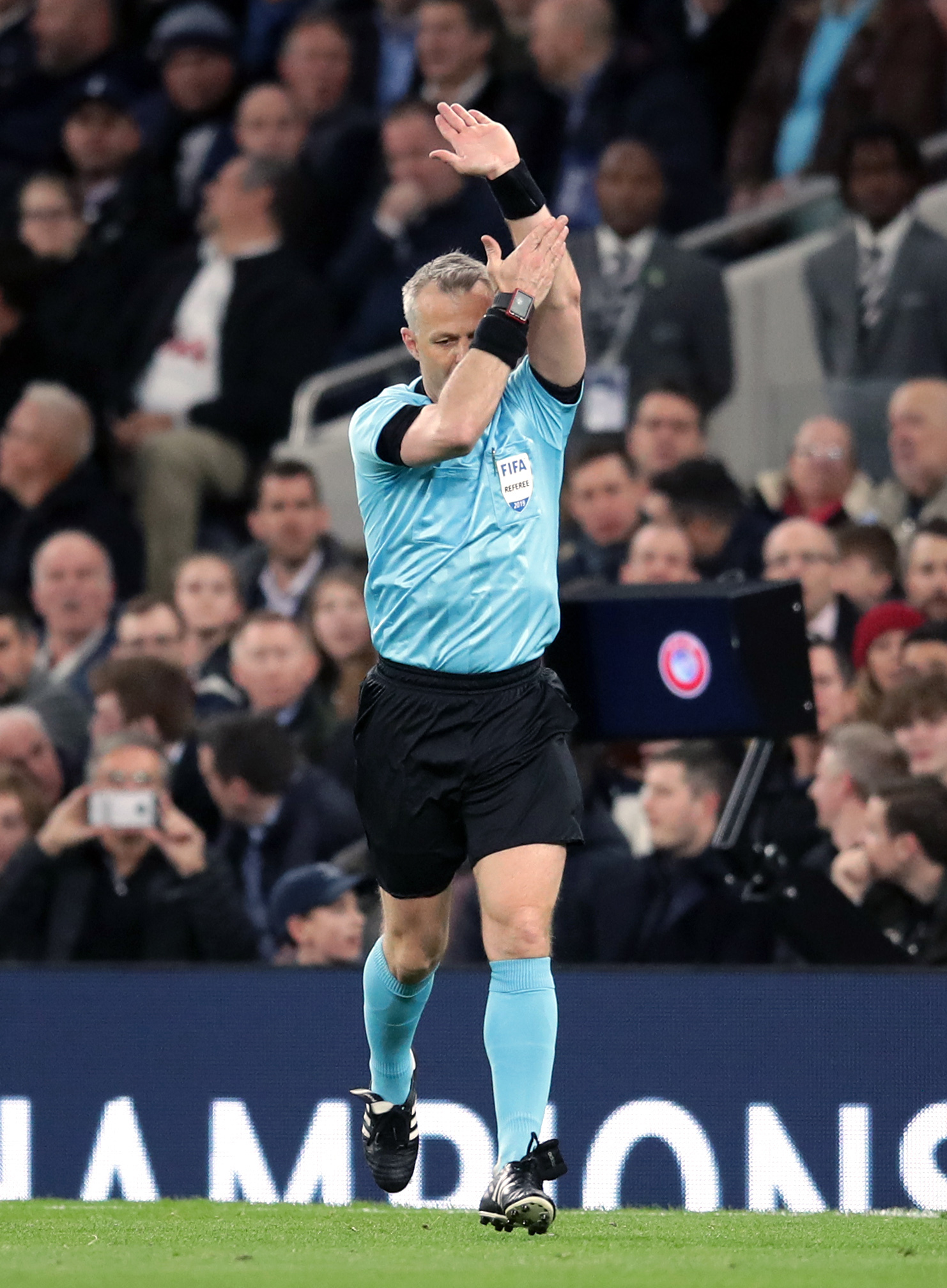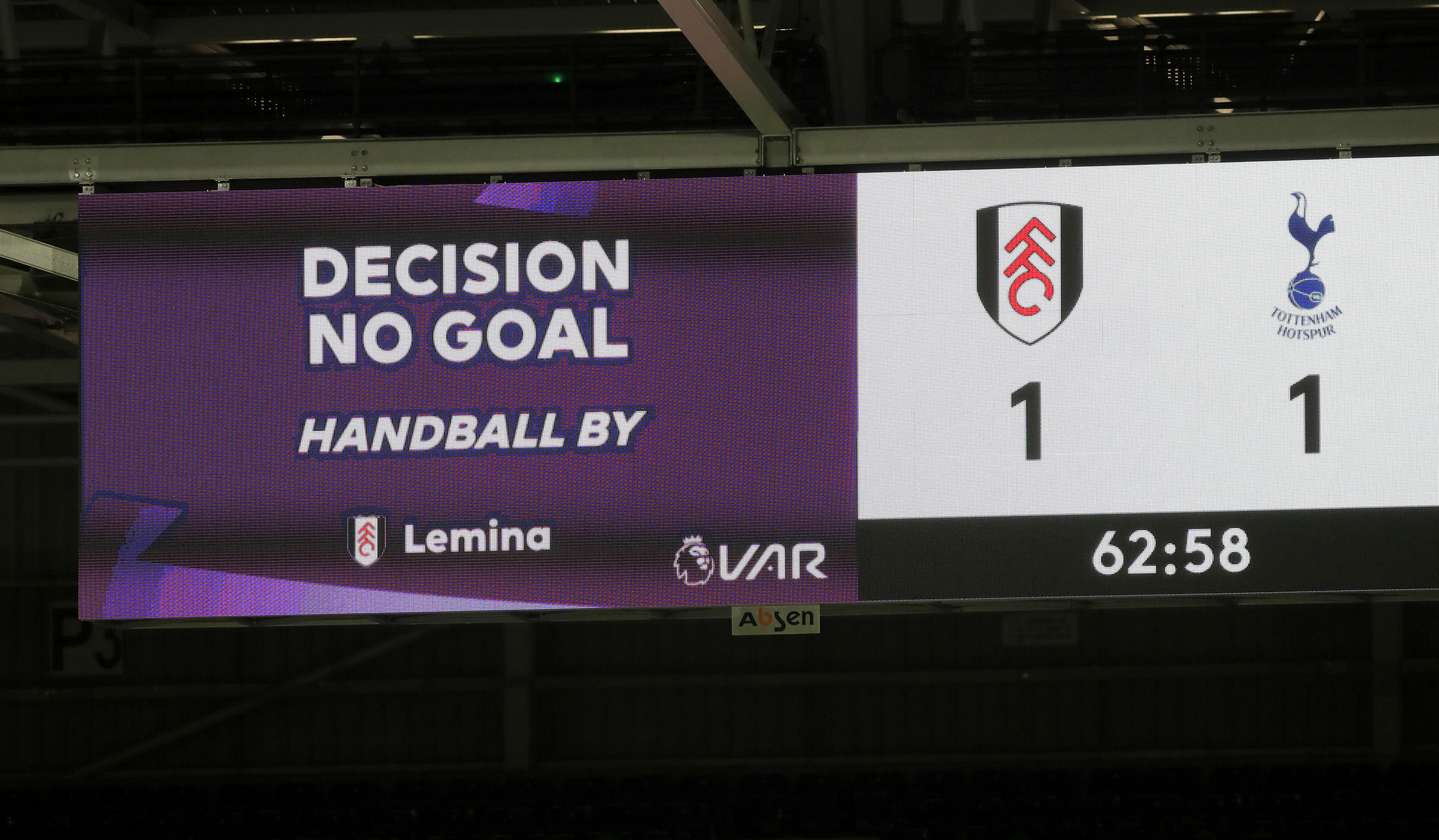UEFA has option to implement new handball law change at Euro 2020

The best features, fun and footballing quizzes, straight to your inbox every week.
You are now subscribed
Your newsletter sign-up was successful
Want to add more newsletters?

Five times a week
FourFourTwo Daily
Fantastic football content straight to your inbox! From the latest transfer news, quizzes, videos, features and interviews with the biggest names in the game, plus lots more.

Once a week
...And it’s LIVE!
Sign up to our FREE live football newsletter, tracking all of the biggest games available to watch on the device of your choice. Never miss a kick-off!
Join the club
Get full access to premium articles, exclusive features and a growing list of member rewards.
The updated handball law could be implemented at Euro 2020 if UEFA chooses to do so.
The game’s lawmakers said on Friday that an accidental attacking handball by a player that led to a team-mate scoring a goal would no longer be an offence.
The change to the law comes into effect worldwide from July 1 but crucially competitions have the flexibility to introduce the amendments prior to that date.
135th Annual General Meeting: The IFAB clarifies handball Law and confirms decision on concussion substitute trials— The IFAB (@TheIFAB) March 5, 2021
UEFA president Aleksander Ceferin wrote to his FIFA counterpart Gianni Infantino last year urging a change in the handball law, so it is possible that his executive committee will look to bring it into effect for the Euros, which begin on June 11.
The International Football Association Board made the change at its annual general meeting on Friday, with both Infantino and the chairman of FIFA’s referees committee Pierluigi Collina accepting the old law “went too far”.
Accidental handballs by a goalscorer will still be penalised, but on the subject of penalising a player who has made their body “unnaturally bigger”, the law was amended to state that it should only be a foul when their body position is “not a consequence of, or justifiable by, their body movement for that specific situation”.
“By having their hand/arm in such a position, the player takes a risk of their hand/arm being hit by the ball and being penalised,” the IFAB stated.
The best features, fun and footballing quizzes, straight to your inbox every week.

This is, in effect, the interpretation that has been used in the Premier League since October, so fans in England should not see too much material difference.
The change on accidental attacking handball comes too late to help Fulham, who had a goal disallowed on Thursday night when a clearance from Tottenham’s Davinson Sanchez cannoned off Mario Lemina’s hand in the build-up to Josh Maja scoring.
Asked whether this was a climbdown by the IFAB, Infantino said: “It’s certainly not embarrassing.
“If we are clarifying certain things it simply means we are listening, watching, attentive, careful to what is going on and it has been the job of the IFAB for 135 years to take on board comments and ideas and judge what needs to be made better.”
The Football Association’s chief executive Mark Bullingham said there were no plans to introduce the law amendments before next season.
Fulham boss Scott Parker said on Friday that VAR and trying to create perfection in football would destroy the sport.
On the impact of VAR, Infantino said: “It is giving and bringing more justice to the game, it’s making the game more clean, it’s helping the referees in taking the correct decision.
“If maybe it takes away the joy of some it gives the joy to others, when a decision is changed.

“I think everyone who is a sportsman prefers to win a game based on the right decision of the referee and not a mistake. It is already unimaginable to think about football without VAR.”
The IFAB did consider the idea of the audio from the discussion between referees and the VAR being broadcast in the future, but this would need to go via the IFAB’s technical panels.
Bullingham welcomed that as a means to improve the “fan experience” and also the positive bulletin IFAB heard regarding semi-automated offsides.
Infantino said the technology – where a signal is sent to the assistant referee almost instantly – could even be in place for the 2022 World Cup in Qatar, but that more testing was needed.

It would cut the current delays, and just leave the referee and his assistants to make a judgement on whether the offside player was interfering with play.
The law was also clarified on Friday to state that a player must be flagged as offside according to the Law 12 definition of handball, which says the arm ends at the bottom of the armpit, and was the judgement used to disallow Timo Werner’s goal for Chelsea against Liverpool on Thursday night.
The IFAB received a presentation on former Arsenal manager Arsene Wenger’s proposal to change the offside law, which in theory would favour attacking players.
The amendment to the law to allow competitions to use five substitutes to assist with player workloads amid the coronavirus pandemic was also agreed to be kept under review.
Currently the amendment runs until December 31 this year for club football and until July 31, 2022 for international football.
 Join The Club
Join The Club










